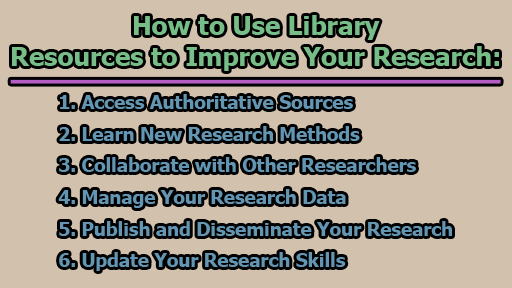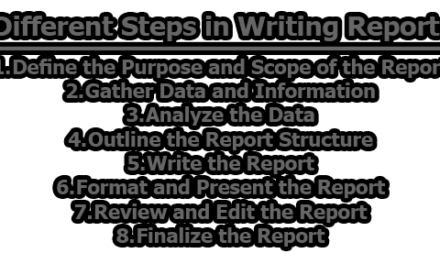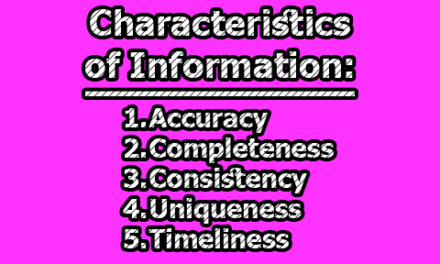How to Use Library Resources to Improve Your Research:
Libraries are like treasure chests of knowledge with lots of books and articles. But they do more than just keep books on shelves. Nowadays, libraries have many things that can really help researchers get better at their work. In this article, we will explore how to use library resources to improve your research.
1. Access Authoritative Sources: One of the primary advantages of utilizing library resources is gaining access to reliable and credible information. Libraries subscribe to academic journals, databases, and e-books that provide high-quality, peer-reviewed content. Researchers can employ various tools such as the library catalog, subject guides, and online platforms to search for and access these sources. Librarians, with their expertise, can assist researchers in identifying and evaluating the best sources for their specific research needs.
2. Learn New Research Methods: Libraries are not just repositories of information; they are also hubs for learning and skill development. Workshops, tutorials, and guides offered by libraries cover a range of topics, including literature review, data analysis, citation management, and plagiarism prevention. Additionally, libraries provide software and hardware for tasks such as data visualization and text analysis. By taking advantage of these resources, researchers can expand their skill set, adopt new research methods, and enhance the quality of their work.
3. Collaborate with Other Researchers: Libraries facilitate collaboration by providing spaces and facilities for group work. Meeting rooms, study areas, and collaborative tools enable researchers to communicate, brainstorm, and share ideas with peers, mentors, or partners. Libraries also host networks and events that connect researchers across disciplines and institutions. Collaboration fosters the exchange of perspectives and insights, ultimately leading to improved research outcomes.
4. Manage Your Research Data: Effectively managing research data is crucial for maintaining its integrity, accessibility, and reusability. Libraries offer data management services, including data repositories, data management plans, data curation, and data sharing. Researchers can utilize these services to organize, store, protect, and share their research data in accordance with ethical and legal standards.
5. Publish and Disseminate Your Research: Libraries play a pivotal role in the publication process by assisting researchers in choosing suitable journals or publishers, navigating copyright and licensing issues, and complying with open access policies. Moreover, libraries provide platforms and channels for researchers to promote and showcase their work, such as institutional repositories, digital collections, and social media. Publishing and disseminating research through these channels increase its visibility, impact, and recognition.
6. Update Your Research Skills: Research is a dynamic field that demands continuous learning and adaptation. Libraries offer resources such as newsletters, blogs, podcasts, and webinars to help researchers stay informed about the latest trends, developments, and innovations in their respective areas of study. Additionally, feedback and support services, such as consultations, reviews, and referrals, are available to assist researchers in enhancing their research performance and outcomes.
In conclusion, researchers across various domains can significantly benefit from the multifaceted resources provided by libraries. From accessing authoritative sources to collaborating with peers and staying abreast of the latest developments, libraries are indispensable allies in the research process. By tapping into these resources, researchers can elevate the quality of their work, broaden their knowledge, and contribute meaningfully to their fields of study.

Library Lecturer at Nurul Amin Degree College










